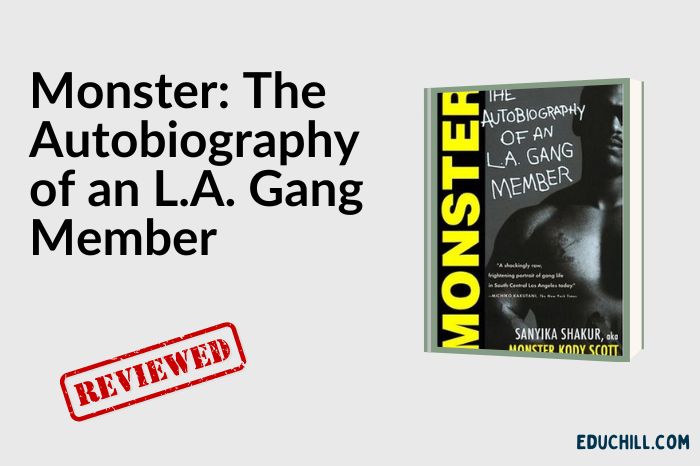Maus is a comical graphic novel that tells the story of the experience of Vladek’s and Anja’s family as survivors of the Holocaust. In Maus ii, Art arrives home to visit his father after a long time. Vladek is sick, unhappy, and in a lousy marriage with Mala. Art is determined to get information from his father for the book that he intends to write about the Holocaust survivors. His father begins his story with how he met and married Anja and their family life in Sosnowiec. The book portrays the horrid impact of the Holocaust on its survivors through the development of its character and the dominant theme of familial and survivor guilt.
What is Maus About: Maus Summary
Vladek is a front-polish soldier when the war breaks in 1939 when he is captured as a detainee of war by the Germans. He lives in a forced labor camp for months before he escapes and returns home to reunite with his family. The impact of the German invasion was hard on the Jews, who were forced to abandon their homes and vacate ghettos with violent soldiers and police. Nazis started to deport the Jews from ghettos to Auschwitz concentration camps, where most of them died from starvation, forced labor, and murder. After losing most of their relatives, Vladek and Anja evade capture by hiding in the homes of well-wishers and bunkers before their arrest by Nazis at the hands of Polish smugglers. Art narrates the events as told by his father, shaping their relationship from resentment to a deeper understanding and compassion.
Maus Characters Analysis
The main characters in the book are the writer, Art Spiegelman, and his Father, Vladek Spiegelman. Art was born after the Holocaust, and so he is the only child of Vladek and Anja, who are still alive. Art lost his brother in the Holocaust and his mother to suicide at twenty years of age. He lives in New York and rarely sees his father due to their strained relationship. Art has mixed feelings towards his father, from admiration for his survival to frustration due to his aggravation and guilt for neglecting him despite his difficult life. Although he never witnessed the Holocaust, Art’s life is directly impacted by the experience his family went through since she was raised by a father whose personality was shaped by the Holocaust.
Vladek from Maus Analysis
Vladek is Ar’ts father whose experiences have built Maus. His first wife was Anja, Art’s mother, and he is unhappily married to a second wife, Mala. Holocaust experiences dominate Vladek’s personality, whose resourcefulness and work ethic enabled him to acquire safety and extra food for himself and Anja. He has learned to be a money saver and refuses to give money to his wife Mala, who he suspects would steal from his life savings. He engages in small projects to make a living. Anja, Vladek’s wife, was anxious and suffered depression after Art was born, which made her spend months in recovery at the sanitarium. She is a Holocaust survivor who moved to the United States with her husband sometime after the war. Anja leaves Vladek and Art emotionally wounded when she commits suicide.
Other characters include Richieu Spiegel, Art’s elder brother, who dies in the Holocaust after he is sent to a different ghetto, which the Nazis liquidate, under the care of his aunt, Tosha. Tosha opts to poison herself, Richie, her daughter Bobbi, and Lonia, Vladek’s niece, rather than die in the gas chambers. His photo hangs on the wall of his parent’s bedroom, which makes Art develop a rivalry with his ‘ghost brother.’ Mala is Vladek’s frustrated wife due to his distrust. She leaves the marriage but comes back towards the end of Vladek’s life. Francoise is an intelligent and kind wife to Art who mostly acts as a mediator in discussing Art’s relationship with his father and the Holocaust.
Familial And Survivor Guilt in Maus
Art feels guilty for not being a good son to Vladek. They do not get along and see each other rarely. Years after the death of his father, the guilt of Art’s neglect consumes him, and he admits that his father’s ghost hangs over him. Art also feels responsible for his mother’s suicide. His last recollection of Anja is when she asks if he loves her, and he dismissively responds with a cold ‘sure.’ Art feels guilty for having a better life than his parents. His psychiatrist, Pavel, suggests that the guilt may result from remorse due to his unfair portrayal of Vladek.
Those who survived the Holocaust are faced with survivor’s guilt, as revealed by Vladek’s character and personality that shape his relationship with Art. Art tells his wife Francoise that sometimes he wishes he was in Auschwitz with his parents so he would get to know what they went through. Vladek, on the other hand, feels guilty for surviving the Holocaust while his family and friends died and extends his frustration to Art, who, according to Pavel, is the real survivor.
Conclusion
As the readers learn more about the Holocaust, Art offers them an opportunity to understand the impact of the historic event on those it concerned. The book also provides a deeper understanding of how specific experiences can influence our character and how we treat those around us.
Frequently Asked Questions about Maus
Here are the answers to the most asked questions about the graphic novel Maus by Art Spiegelman.
Which best describes Why Wiesel and Spiegelman include Jewish Children in their works?
Both texts by Wiesel and Spiegelman single out the naivete and innocence of the children during the Holocaust. They portray how they survived those horrible times and how they influenced their life and the lives of their children.
Which theme Do All Rivers Run to the Sea and Maus share?
The central theme that the novels All Rivers Run to the Sea and Maus share is the impact of personal history and identity exploration. Also, the lives of the Holocaust victims are described as uncertain.
What does the image help the reader to understand about holocaust survivors?
The memories of the Holocaust are something that survivors can never escape from. Typically, survivors don’t like being questioned about their experiences, as it can be a source of annoyance. Vladek, being old and tired, also prefers not to talk about it much.
Which best describes Art Spiegelman’s work “Maus”?
The novel describes the horrors of the Holocaust. The author wants to show that such horrible events of the past still influence the Holocaust survivors. Finally, Art Spiegelman describes the communication problems and generation gap between two generations.
What does ‘maus’ mean?
In the graphic novel “Maus,” Art Spiegelman draws the Jews as mice characters, and the Nazis are depicted as cats.





